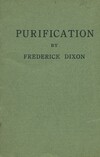

Are you sure?
This bookmark will be removed from all folders and any saved notes will be permanently removed.
The Lust of Power
("The Lust of Power"—The Christian Science Monitor, Boston, U.S.A., June 22, 1918)
The Christian Science Monitor
Every evil thing in this world comes from some misunderstanding of generic man, ultimating in a belief of a self apart from God. The materialist believes that the human being, endowed with human intelligence, represents dominion. The Christian reading perpetually the words of the fourth gospel, "The Son can do nothing of himself, but what he seeth the Father do," promptly appropriates all the honor and glory of his successful actions as the result of his own genius or industry, though he is commonly quite willing to explain away his unsuccessful ones. Now if the materialist or the Christian had only understood that the human being is only an effect, governed by a mental cause, he would have begun to understand, at the same time, the meaning of the very simple words of Jesus, and so the equally simple explanation of life which has been a sealed book to the materialist throughout all the ages.
What Jesus clearly meant was that man had no volition of his own which enabled him to act independently of God, divine Mind, but that he was entirely subject to divine causation. Indeed, as if to place this quite beyond any misunderstanding, he immediately reiterated his declaration, in the slightly different words, "for what things soever he doeth, these also doeth the Son likewise." And these sayings Mrs. Eddy has driven home in a memorable sentence on page 170 of Science and Health, "Spiritual causation is the one question to be considered, for more than all others spiritual causation relates to human progress." This is most undoubtedly true, for so long as a man imagines that he is engaged in a struggle in which his intelligence is pitted against the forces of nature, he is bound to claim and accept the credit of his success, and to lust more and more after the power that gives him that success. But as he comes to understand better the Science of being, he begins to grasp the scientific fact of generic man, and to see why Jesus taught all mankind to pray to "our Father," and why he explained that a grain of faith, of the faith born of an understanding of God and man, cause and effect, would move mountains.
Now a man's lust for power is necessarily based on the belief that the acquistion of power will bring the lusts of the flesh within his grasp. It is, for instance, only the distraught mind of the miser that accumulates gold to hoard; the ordinary healthy materialist pursues gold for the power it gives to him to purchase his desire. The moment, however, an understanding of generic man is acquired, the lust for personal power is overwhelmed in the vastness of the conception which scientifically explains the relations of all divine ideas in their perfection of quality and of harmony. In reference to which Mrs. Eddy, writing, on page 361 of Science and Health, of Jesus' claim to the sonship of god, continues, "This declaration of Jesus, understood, conflicts not at all with another of his sayings: 'I and my Father are one,'—that is, one in quality, not in quantity."
Enjoy 1 free Sentinel article or audio program each month, including content from 1898 to today.
JSH Collections
This article is included in:
1918 - PAMPHLET
Purification
JSH-Online has hundreds of pamphlets, anthologies, and special editions for you to discover.

October 5, 1918 issue
View Issue-
Soldiers of Liberty
M. ETHEL WHITCOMB
-
"One is your Master"
JOSEPH B. BAKER
-
The Denial of Self
EDITH M. ALPE
-
Supply Spiritual
ANNA L. WILLS
-
Truth Telling Destroys Evil
CHARLES DANIEL REYNOLDS
-
The Responsive Heart
BEN HAWORTH-BOOTH
-
Christian Scientists were glad to see the dispatch from...
Judge Clifford P. Smith
-
Special Announcement
with contributions from Allison V. Stewart, The Christian Science Board of Directors
-
Thy Guard by Night and Day
William P. McKenzie
-
The Judgment Day
Annie M. Knott
-
Water of Everlasting Life
William D. McCrackan
-
Admission to Membership in The Mother Church
Charles E. Jarvis
-
To many people the restoration of their religious faith...
Mary H. Cummins
-
There have been times when the apparently terrible material...
Gilbert D. Adkin with contributions from I. C. A. Adkin
-
It so happened that the discovery of Christian Science...
Carey L. Smith
-
I wish to add my song to the paean of praise and gratitude...
Callie G. Varley
-
I must try to express a measure of my gratitude for...
Edith B. Shreve
-
In 1912, when in a desperate condition both in mind and...
Willie G. Coleman



